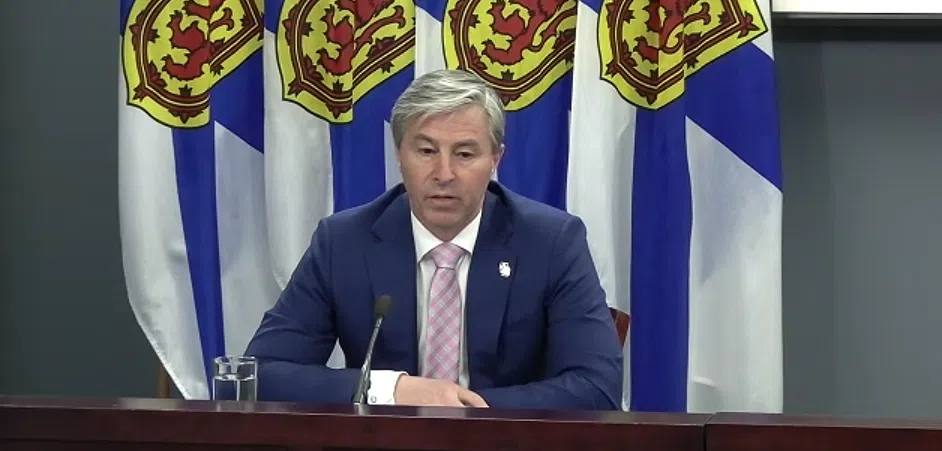As the tariff threat continues to loom, the province has created a survey and hotline number to help business owners navigate the situation and keep informed.
Premier Tim Houston says now, more than ever, we need to be Nova Scotia loyal.
“Our local businesses know this, and they’re looking for ways to grow their business across Canada and internationally. They’ll have questions, and we’re here to help,” said Premier Tim Houston. “If the Trump Tax returns, it will raise costs for everyone on both sides of the border.”
In fact, according to government data, Canada is the largest export market for a good chunk of the U.S., with $4.4 billion worth of goods shipped from Nova Scotia in 2023 including fish, forest products and plastics.
Houston says they hope the U.S. will not reinstate the “harmful policy”.
“In the meantime, we are fighting for Nova Scotian businesses, and we’ll take strong action to help them stay strong and competitive.”
The response comes after U.S. President Donald Trump signed an executive order over the weekend to impose 25 per cent tariffs on Canadian exports.
That was paused for 30-days after striking a deal with Prime Minister Justin Trudeau, Monday, mere hours before the tax was expected to take effect.
To share experiences on any barriers they may face about expanding into the U.S. or other international markers, business owners can now fill out the survey or call the hotline at 1-800-670-4357.
The province will then take that information into account, before moving forward with their tariff response.
NDP says we need to take it a step further
The official opposition says, although a tariff hotline and survey are great first steps, we still need to take it a step further.
In a statement, leader Claudia Chender says we must take this time to work together and make sure we have a plan to respond to build a stronger economy.
“We welcome the tariff response survey and hotline that gives people an opportunity to engage in this conversation. Now, we need to create a task force that brings together labour, industry, Indigenous representatives, and political and community leaders, similar to what provinces like Newfoundland and Labrador, Manitoba, and B.C. have done.”
Chender adds, Nova Scotians haven’t seen Houston for the last two weeks and are wondering what comes next.
“With 29,000 jobs directly connected to exports to the U.S., we must act now and meet this moment together.”











